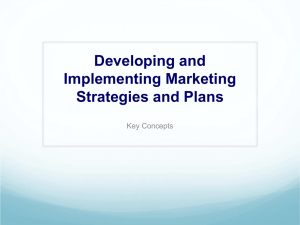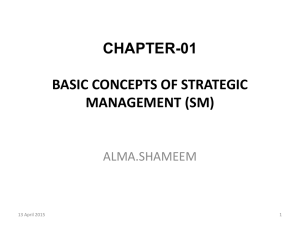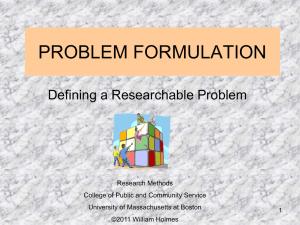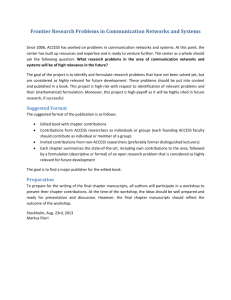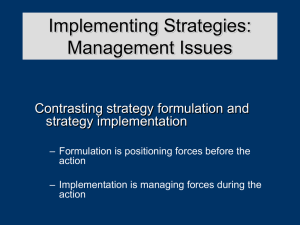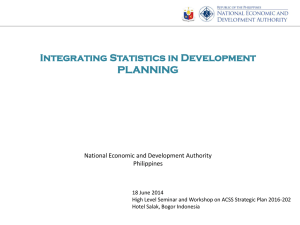Cert Enhancing Skills in Clinical Case formulation
advertisement
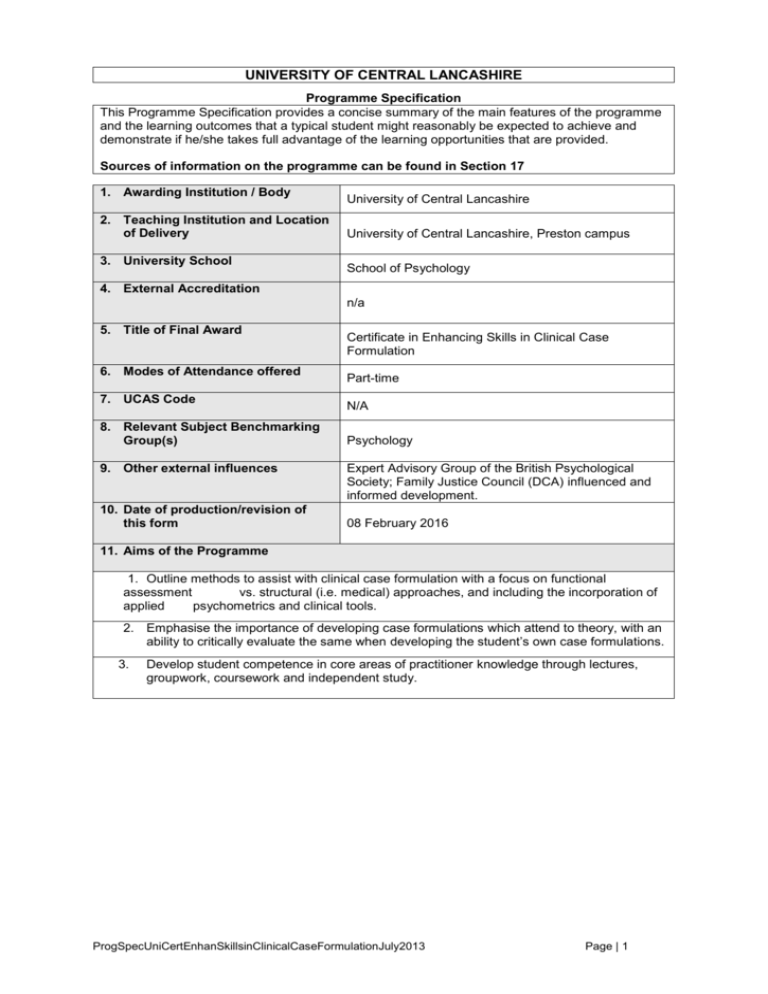
UNIVERSITY OF CENTRAL LANCASHIRE Programme Specification This Programme Specification provides a concise summary of the main features of the programme and the learning outcomes that a typical student might reasonably be expected to achieve and demonstrate if he/she takes full advantage of the learning opportunities that are provided. Sources of information on the programme can be found in Section 17 1. Awarding Institution / Body 2. Teaching Institution and Location of Delivery 3. University School University of Central Lancashire University of Central Lancashire, Preston campus School of Psychology 4. External Accreditation n/a 5. Title of Final Award 6. Modes of Attendance offered 7. UCAS Code 8. Relevant Subject Benchmarking Group(s) 9. Other external influences 10. Date of production/revision of this form Certificate in Enhancing Skills in Clinical Case Formulation Part-time N/A Psychology Expert Advisory Group of the British Psychological Society; Family Justice Council (DCA) influenced and informed development. 08 February 2016 11. Aims of the Programme 1. Outline methods to assist with clinical case formulation with a focus on functional assessment vs. structural (i.e. medical) approaches, and including the incorporation of applied psychometrics and clinical tools. 2. Emphasise the importance of developing case formulations which attend to theory, with an ability to critically evaluate the same when developing the student’s own case formulations. 3. Develop student competence in core areas of practitioner knowledge through lectures, groupwork, coursework and independent study. ProgSpecUniCertEnhanSkillsinClinicalCaseFormulationJuly2013 Page | 1 12. Learning Outcomes, Teaching, Learning and Assessment Methods A. Knowledge and Understanding Upon completion of the programme a successful student will be able to: A1. Demonstrate knowledge of skills in clinical case formulation. Teaching and Learning Methods Lectures, discussions, case study material to draw upon experiences, and independent study. Assessment methods Through clinical case formulation. B. Subject-specific skills Upon completion of the programme a successful student will be able to: B1. apply theory to case formulation, and analyse personal practice. Teaching and Learning Methods Lectures, discussions, case study material to draw upon experiences, and independent study. Assessment methods Through clinical case formulation and a reflective analysis. C. Thinking Skills Upon completion of the programme a successful student will be able to: C1. Synthesize and critically evaluate relevant literature on a specific aspect of clinical case formulation. Teaching and Learning Methods Lectures, discussions, case study material to draw upon experiences, and independent study Assessment methods Through a clinical case formulation which includes critical analysis. D. Other skills relevant to employability and personal development Upon completion of the programme a successful student will be able to: D1. act as independent learners and perform critical analysis appropriate to undergraduate study. Teaching and Learning Methods Lectures, discussions, case study material to draw upon experiences, and independent study Assessment methods Through clinical case formulation and a reflective analysis. ProgSpecUniCertEnhanSkillsinClinicalCaseFormulationJuly2013 Page | 2 13. Programme Structures* 14. Awards and Credits* Level Module Code Module Title Credit rating Level 7 PS4813 Enhancing Skills in Clinical Case Formulation 20 Certificate in Enhancing Skills in Clinical Case Formulation Requires completion of 20 credits at level 7 (PS4813) 15. Personal Development Planning The course is targeted at practitioners who will be completing personal development/continuing professional development logs as part of membership to professional bodies. The course will add to their logs and provide them with a considerable number of hours towards their yearly regulated commitments with professional bodies. The course also includes components of assessed reflective analysis and critical review to assist with this. The course is aimed at employed professionals or para-professionals and thus discussing career goals with them is clearly not appropriate: they do not represent a standard student group. However, for some attendees the course will actually represent part of the PDP planning. 16. Admissions criteria Programme Specifications include minimum entry requirements, including academic qualifications, together with appropriate experience and skills required for entry to study. These criteria may be expressed as a range rather than a specific grade. Amendments to entry requirements may have been made after these documents were published and you should consult the University’s website for the most up to date information. Students will be informed of their personal minimum entry criteria in their offer letter. Applicants can only be considered for Certificate in Enhancing Skills in Clinical Case Formulation if they: 1. Present with a degree of 2:2 or above, or equivalent set of appropriate prior professional experience/qualifications (e.g. NVQ level 3 with 12 months experience)*. 2. Are registered with a recognised professional body or organisation, one that is regulated or formally registered to an acceptable level (e.g. BPS, BABCP, HCPC, nursing body or regulated employer). 3. Have a score of 6.5 in IELTS (or equivalent) for students whose first language is not English. In addition to fulfilment of the primary criteria, candidates will complete an application form that is assessed. *Note that the certificate qualification is listed as an UG level qualification. . 17. Key sources of information about the programme UCLan Website: BPS Division of Forensic Psychology Website: BPS Expert Witness Advisory Group ProgSpecUniCertEnhanSkillsinClinicalCaseFormulationJuly2013 http://www.uclan.ac.uk/schools/psychology/ http://www.bps.org.uk/dfp/ http://www.bps.org.uk/dfp/ Page | 3 18. Curriculum Skills Map LEVEL 7 Level Module Code PS4813 Module Title Enhancing Skills in Clinical Case Formulation Programme Learning Outcomes Core (C), Compulsory (COMP) or Option (O) CORE ProgSpecUniCertEnhanSkillsinClinicalCaseFormulationJuly2013 Knowledge and understanding Subject-specific Skills Thinking Skills Other skills relevant to employability and personal development A1 B1 C1 D1 * * * * Page | 4
